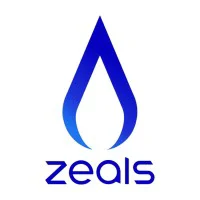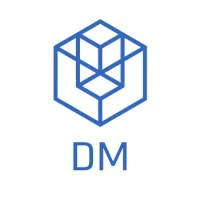Job description
Role Overview
We are seeking a Senior AI Agent Engineer to design, develop, and deploy custom AI agents powered by large language models (LLMs) for both internal use and external clients. In this role, you will leverage OpenAI APIs and Python, along with frameworks like LangChain, to build intelligent agents capable of complex, multi-step interactions.
These AI agents will be tailored to unique business needs, meaning you’ll work closely with clients to understand their requirements and translate them into technical solutions. The position involves end-to-end ownership of agent development – from initial concept and rapid prototyping to testing, deployment, and ongoing improvement – all while ensuring the delivered solutions effectively address client objectives and deliver value.
Responsibilities
Gather & Define Requirements: Work directly with clients and stakeholders to gather requirements and understand business challenges, then translate those needs into AI agent specifications and solution designs, ensuring alignment with client expectations. Maintain clear communication throughout projects to keep technical and non-technical collaborators on the same page.
Agent Development: Design and implement custom LLM-based agents using Python and OpenAI’s API ecosystem. Leverage frameworks like LangChain to orchestrate complex chains of prompts, tools, and memory within your agents, enabling them to perform multi-step reasoning and interact with external data sources as needed.
Rapid Prototyping & Iteration: Quickly build proof-of-concept agents and conversational flows, then test and refine their behavior in an iterative cycle. Use prompt engineering and other tuning techniques to improve the agent’s responses with each iteration, rapidly incorporating feedback until performance and accuracy goals are met.
Tool Integration: Integrate external tools, APIs, and databases into the agent’s workflow to extend its capabilities. For example, you might give an agent the ability to perform web searches, run calculations, or query a database – enabling the LLM to do more than just generate text, by taking actions or retrieving information as part of its reasoning process.
Memory Management: Implement strategies for both short-term and long-term memory in your agents. This could involve maintaining conversational context across turns, as well as using vector databases to store and retrieve embeddings as the agent’s “knowledge base”, allowing it to remember facts or reference external information when generating answers.
Deployment: Deploy AI agents into production environments with an eye on scalability, security, and reliability. Utilize cloud functions or containerization (Docker/Kubernetes) to host and scale agents as needed. Set up monitoring and logging to track agent performance, latency, and accuracy, ensuring the system remains robust in a live setting.
Maintenance & Improvement: Continuously monitor and maintain deployed agents. Diagnose and troubleshoot issues or unexpected behaviors, and implement updates or improvements to enhance agents’ capabilities over time. Incorporate user feedback and new data into the agent’s knowledge or logic, and retrain or reconfigure as necessary to keep solutions aligned with evolving business needs.
Requirements
Proven LLM Experience: Demonstrated experience building custom AI agents or applications powered by LLMs in real-world settings (for example, a proven track record of developing AI agents on top of models like GPT-3⁄4 for actual users or clients). You should be able to point to projects or products where you were responsible for designing LLM-driven solutions from the ground up.
LLM Ecosystem Knowledge: Deep understanding of the LLM ecosystem, including expertise in OpenAI’s models and APIs, prompt engineering (crafting effective prompts to guide model outputs), and methods for extending an LLM’s capabilities. You should be comfortable managing context windows and memory, and know how to enable LLMs to use external tools or incorporate retrieved knowledge when needed.
Python & LangChain Proficiency: Strong programming skills in Python, with the ability to write clean, production-quality code. Hands-on experience with libraries and frameworks for LLM development – especially LangChain – is required, as it provides abstractions for tool usage and memory integration (interfaces for embedding models and vector stores). Familiarity with additional ML/AI libraries (e.g. Hugging Face Transformers, OpenAI SDK) is a plus.
OpenAI API Mastery: Extensive experience using OpenAI’s APIs (and/or similar LLM services) to build applications. You understand how to optimize API usage, handle rate limits and errors, manage conversation state, and generally get the most out of models like GPT-4 in a reliable way. Experience with prompt design and parameter tuning for different tasks is expected.
Communication Skills: Excellent written and verbal communication skills, with a knack for client interaction. You must be able to clearly explain complex AI concepts and the behavior of your agents to non-technical stakeholders in simple terms. Equally important is the ability to listen to client feedback and requirements and translate them into iterative improvements. Prior client-facing or consulting experience is highly valued.
Problem-Solving & Autonomy: Strong analytical thinking and problem-solving abilities. A self-driven attitude with the ability to take ownership of projects, work independently, and navigate ambiguous requirements is essential. You excel at balancing rapid iteration with thoughtful design, meeting deadlines and delivering reliable solutions without sacrificing quality or creativity.
Education & Experience: Bachelor’s degree in Computer Science, Data Science, or a related field (or equivalent practical experience) is required. 5+ years of professional software development and/or machine learning engineering experience, with at least 2+ years focused on developing AI/ML or NLP-based solutions. An advanced degree (MS/PhD) in a relevant field or research experience in AI is a plus.
Preferred Qualifications
Deployment & MLOps: Experience deploying and scaling AI solutions in cloud environments, with an understanding of MLOps best practices for maintaining models in production. Familiarity with cloud platforms (AWS, GCP, or Azure) for deploying services (e.g. using AWS Lambda, Google Cloud Functions) and containerization technologies (Docker, Kubernetes) for scaling and portability is preferred.
Vector Databases & Retrieval: Working knowledge of vector databases (e.g., Pinecone, FAISS, Weaviate) and how to use them in LLM applications to provide long-term memory or knowledge retrieval. For example, you know how to store embeddings and query them so the agent can pull in relevant information from a knowledge base to enhance its responses.
Agent Orchestration Tools: Exposure to advanced agent orchestration frameworks or multi-agent systems. Experience with emerging tools that coordinate complex workflows for AI agents (such as managing multiple agents or integrating numerous tools) is a plus. Familiarity with frameworks like Microsoft’s Semantic Kernel, OpenAI’s function calling or tool plugins, or multi-agent systems (e.g. AutoGPT-style orchestrators) would indicate an ability to design and manage sophisticated agent interactions.
Model Fine-Tuning: Experience fine-tuning or customizing LLMs on domain-specific data sets. While this role primarily uses pre-trained models via APIs, the ability to fine-tune models or use techniques like few-shot learning and embeddings fine-tuning to optimize performance for specific tasks or industries is beneficial.
Domain Expertise: Background in developing AI solutions for specific industry domains (finance, healthcare, e-commerce, etc.) can be helpful. Domain knowledge can accelerate understanding of client data and requirements, enabling you to tailor AI agents more effectively to different business contexts. This is a nice-to-have, not a strict requirement.









